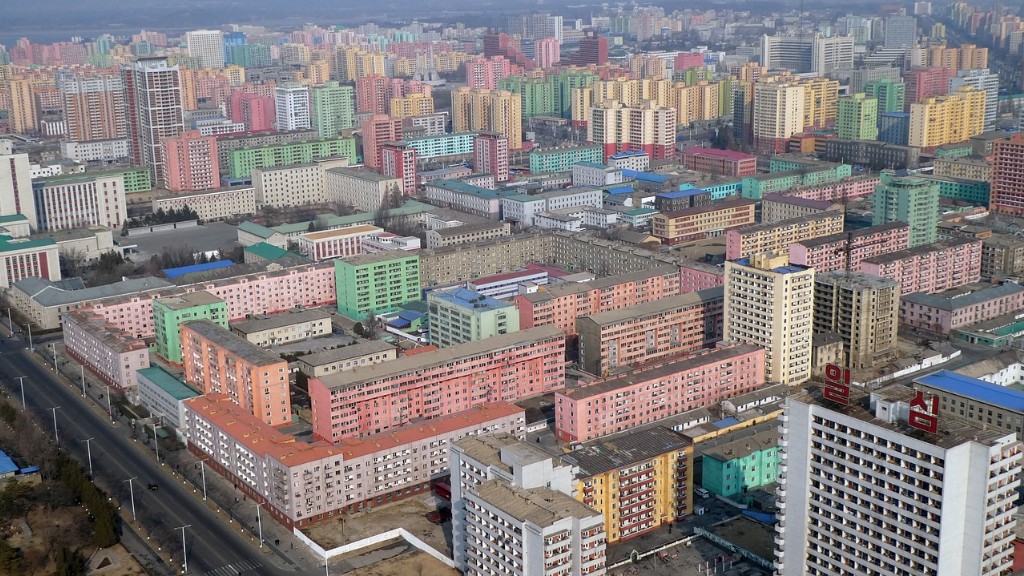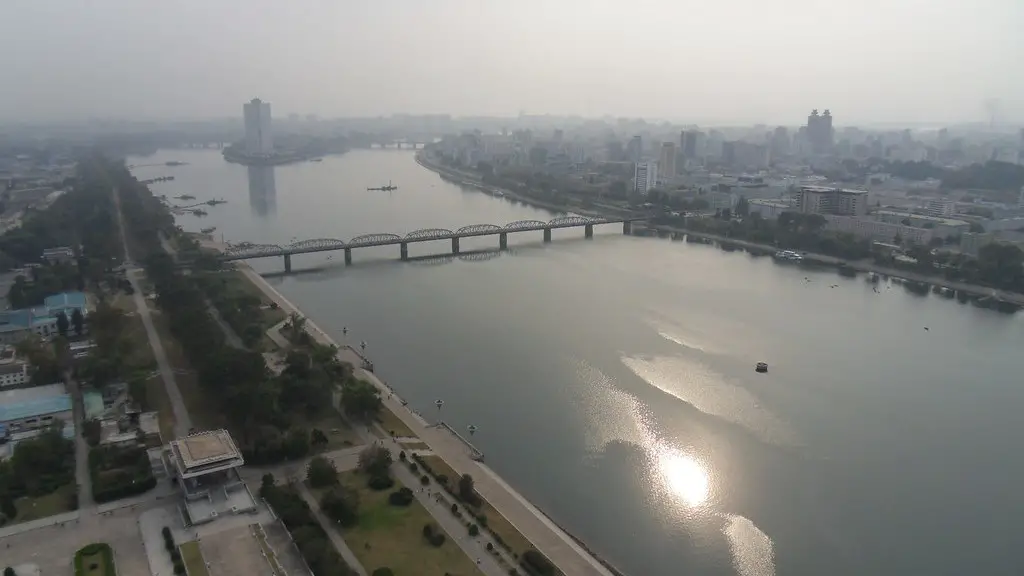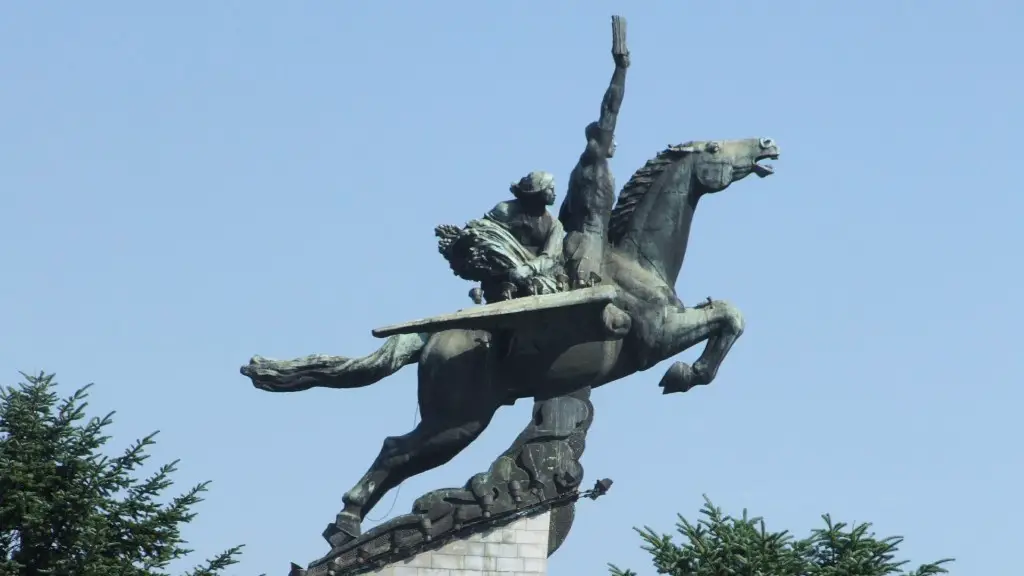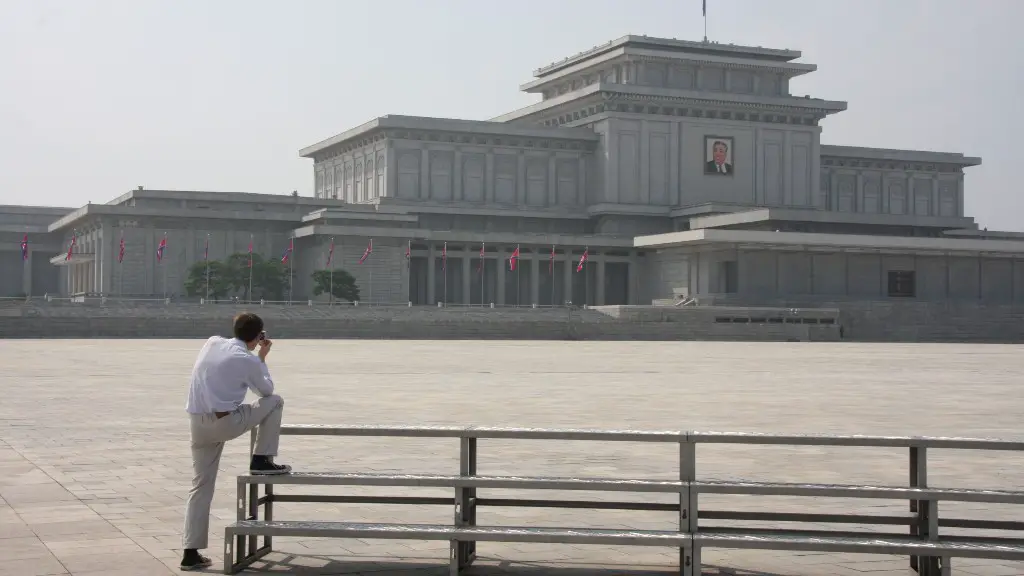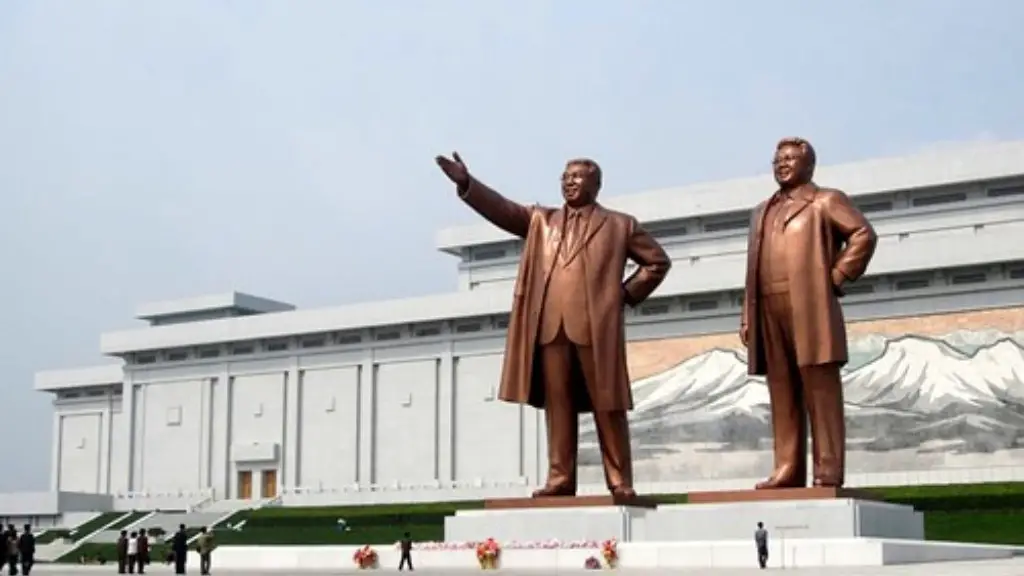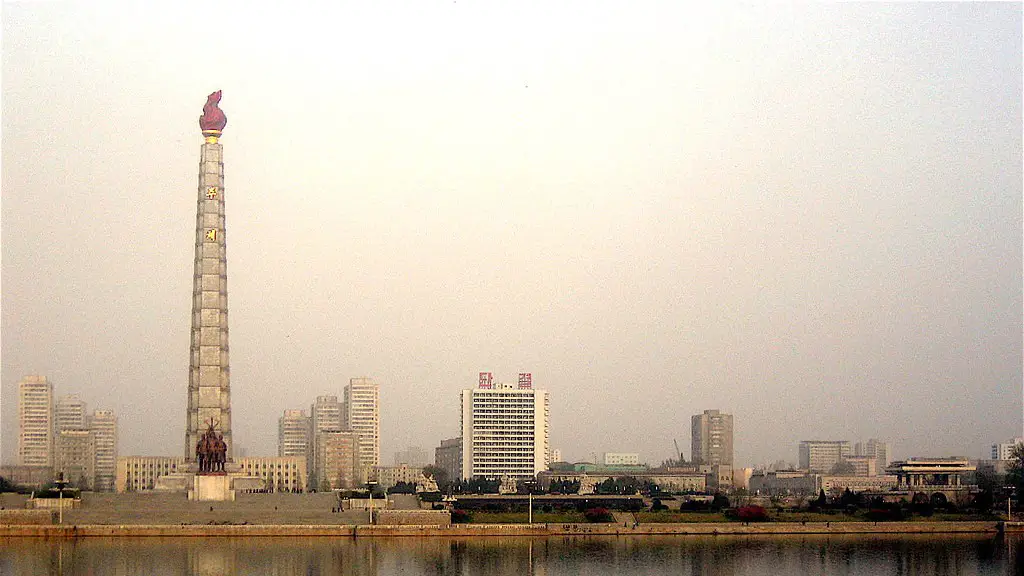North Korea is one of the world’s most secretive countries and there are a number of things that its citizens are not allowed to do which are very different from what is allowed in other countries. This article provides a comprehensive overview of the restrictions in place and how they affect the people of North Korea, as well as the implications for the international community.
One of the most significant restrictions placed by the North Korean government is the limitation of access to foreign media. It is illegal for citizens to access any news, films, books or music from outside the borders of the country. This is done to ensure that the citizens remain insulated from any influences from outside the country, and also to prevent them from getting ideas from the outside world. Additionally, there is a very strong cultural emphasis on loyalty to the government, and any attempt to access foreign media or express dissenting views is punishable by death.
Traveling abroad is also highly restricted in North Korea. Citizens are only allowed to travel to other countries if they have been specifically authorized by the government to do so. Even then, they are usually heavily monitored upon their return to ensure that they have not been exposed to any external influences. Additionally, they are not allowed to bring back any materials or information from such trips, as this is also viewed as a potential threat to the government.
In addition to travel and media restrictions, North Koreans are also not allowed to freely exchange money with anyone outside the country. Only those with explicit permission from the government are allowed to do so. This is yet another attempt by the government to limit their citizens’ access to information and resources from abroad, as well as to regulate the flow of capital in and out of the country.
Religious freedom is also highly restricted in North Korea. Religion is seen as a threat to the government and citizens are not allowed to practice any religion inconsistently with the government’s wishes. This has led to some religious minorities being persecuted and even arrested for their beliefs. Furthermore, religious materials are banned and even possessing a bible is a crime.
The restrictions placed on freedom of speech in North Korea are some of the most extreme in the world. Citizens are strictly monitored and there is zero tolerance for any criticism of the government or its policies. Even private conversations between family members or friends have to be kept as neutral as possible, and it is a crime to speak ill of the government or its leaders.
Finally, the North Korean government has also placed a great emphasis on maintaining low levels of waste and damage to the environment. Citizens are not allowed to pollute the air, land or water and failure to comply with these regulations can result in severe punishment. This is an attempt by the government to preserve the environment for its citizens, however, it is done at the expense of certain freedoms.
Strict Family Regulations
The government of North Korea has strict rules governing families and their behavior. For example, couples are required to obtain permission from the government before getting married, and any couples who are in a relationship outside of marriage can be punished. In addition, family sizes are limited and couples are only allowed to have two children. Families who have more than two children must pay hefty fines, and there are also restrictions on who family members can visit and where they can travel.
Education is also highly regulated in North Korea. Students are required to memorize and recite large amounts of government propaganda and they are heavily indoctrinated in the government’s ideology. The government also determine which subjects are taught in schools and what books are used as reading materials. Furthermore, students who fail to comply with the government’s expectations can be expelled or even arrested.
In terms of employment, the government tightly controls all available jobs, with only certain professions being allowed for citizens. Not only that, but those who are employed must adhere to strict labor regulations, and failure to do so can result in the loss of their jobs.
The government also restricts the types of food that citizens can access, with only government approved food being allowed. This is done in an attempt to keep citizens from consuming any food or products that could be seen as potentially damaging to their health. Additionally, a strict rationing system is in place, with citizens only able to buy certain amounts of food per month.
Implications for the International Community
The unyielding restrictions imposed by the North Korean government have profound implications for the international community. For one, the lack of freedom of speech and access to foreign media makes it difficult for citizens to get a full understanding of the global situation and therefore makes them vulnerable to misinformation propagated by the government. This can lead to distrust and misinterpretation of events that the international community is involved in.
It is also concerning for those in the international community that basic rights such as the right to religious freedom and the right to freely exchange money are not allowed in North Korea. If a country’s citizens do not have basic rights, then it is likely that they will not have any leverage to stand up against their government, leaving them in a precarious position. This could easily lead to human rights abuses if left unchecked.
Finally, the restrictions on the environment in North Korea have serious implications for the global environment, as the country is using its resources inefficiently due to the regulations in place. This is particularly concerning in the context of climate change, as it means that North Korea is not able to take the necessary measures to reduce its emissions and contribute to the global effort to address this issue.
Violations of International Agreements
The restrictions imposed on the people of North Korea are highly concerning for the international community as it is in direct violation of many international agreements. For example, the International Covenant on Civil and Political Rights, which the majority of countries in the world have signed and agreed to, covers a variety of areas such as freedom of speech, religion, assembly and movement. However, these areas are severely restricted in North Korea.
The United Nations Convention against Torture and Other Cruel Inhumane or Degrading Treatment or Punishment is another example of an international agreement that North Korea violates with its restrictions. Torture is a key tool used by the North Korean government to keep its citizens in line, and its use is in stark contrast to the actions taken by other countries in line with this agreement.
Furthermore, the restrictions on freedom of speech and access to foreign media in North Korea are a violation of several other international agreements. These include the Universal Declaration of Human Rights, the European Convention on Human Rights and others. In particular, the use of censorship and the detention of those who dissent are in direct violation of all of these agreements.
The Impact on North Korean Citizens
The restrictions imposed by the North Korean government are detrimental to the lives of its citizens, who are unable to freely exchange money, travel, learn, express themselves or practice their religion. These limitations on human rights are not only oppressive, but they can also lead to feelings of isolation and fear for the people of North Korea.
The lack of freedom and access to resources also has a significant impact on the economy of North Korea, as citizens are unable to generate wealth and create businesses due to the restrictions on foreign investment. This is seen in the stark contrast between the poverty of North Koreans and the relative wealth of South Koreans, as well as the limited access that North Koreans have to resources such as food and medical care.
Additionally, the lack of access to foreign media and the heavy use of propaganda by the North Korean government has meant a lack of understanding of the wider world, which is controlled and filtered by the government. This leads to misinformation and a general ignorance of world events, making it difficult for North Koreans to understand their place in the world and how their government operates.
International Response
Due to the extreme restrictions and human rights violations in North Korea, the international community has taken action in order to try and address these issues. For example, multiple UN resolutions have been passed in order to condemn the North Korean government for its actions, and several countries have enacted sanctions in order to try and pressure the regime into changing their policies.
The United States has also taken a lead in trying to address these issues, as the Trump administration has taken a hard-line stance against North Korea and has implemented harsh sanctions on the country. Additionally, the US has also been actively engaged in diplomatic efforts to try and get North Korea to comply with international standards.
However, the international response has largely been met with resistance by North Korea, as the country has refused to budge on its stance and has continued to crack down on dissenters and restrict the rights of its citizens. As a result, the severity of the restrictions and the human rights abuses in North Korea remain, and are a cause for concern for the international community.
Civil Disobedience and Resistance
In spite of the government’s attempts to maintain control, there have been pockets of resistance and civil disobedience in North Korea which have sought to challenge the regime’s authority. For example, there have been reports of citizens speaking out against the government, as well as attempts to access foreign media and other resources.
There have also been attempts by defectors and activists to send information and resources into the country, in order to try and provide citizens with a better understanding of the world and to challenge the government’s narrative. These efforts have been difficult due to the government’s tight control over the borders, but there have been signs of progress. However, these attempts to challenge the regime are often met with severe punishment.
The international community has also attempted to support these efforts, by providing support and resources to those who are attempting to combat the government from within. Organizations such as Human Rights Watch and Amnesty International have also been vocal in their criticism of the North Korean government and their attempts to raise awareness about the issues facing the citizens.
Overall, it is clear that the restrictions imposed by the North Korean government have severe implications for both its citizens and the international community. This is an issue that needs to be addressed, and international organizations and countries must be willing to take action in order to ensure that human rights are respected in North Korea.
